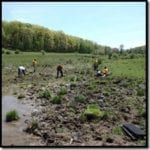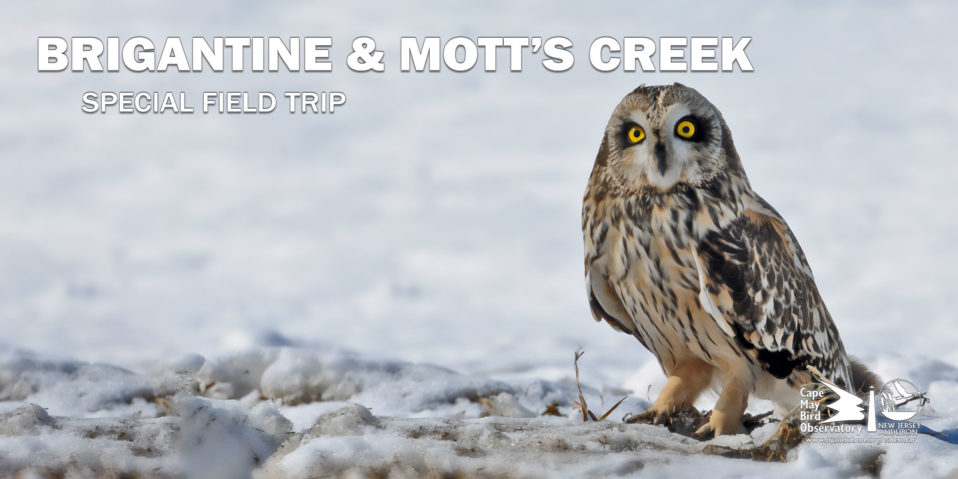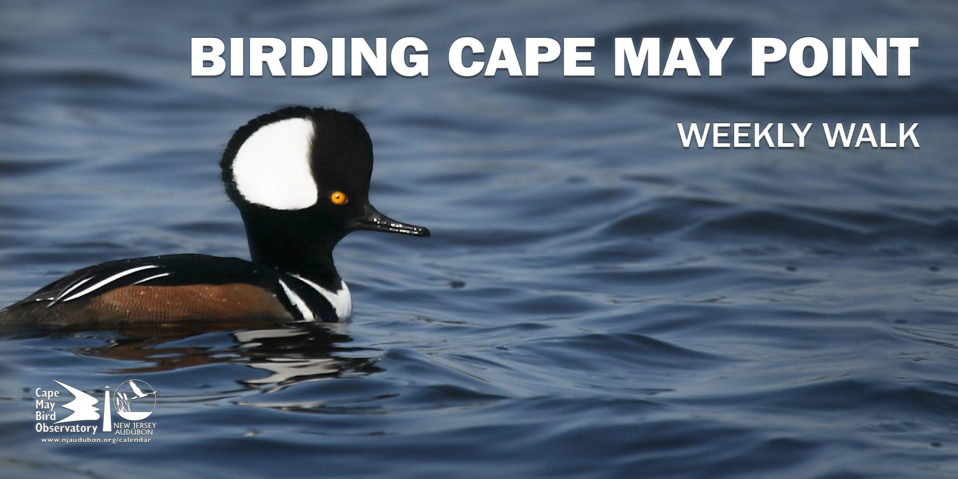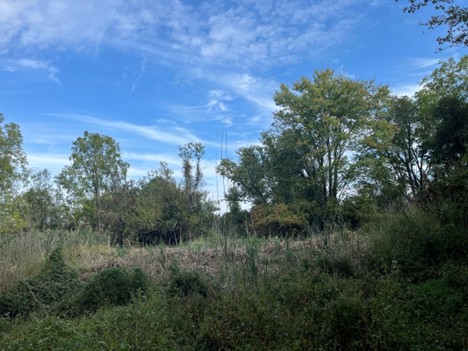New Jersey Audubon is pleased to announce it has received one of the first Delaware Watershed Conservation Fund grants from the National Fish and Wildlife Foundation. Specifically, these matching grants are awarded to conserve and restore natural
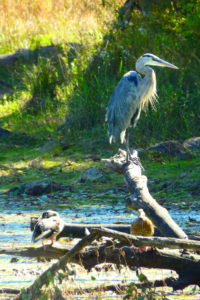
A Great Blue Heron and Mallads in the Delaware River Watershed (Photo by John Parke)
waterways on public and private lands to support migratory and resident wildlife. As part of the Delaware River Watershed Initiative, NJ Audubon has partnered with Hudson Farm and the U.S. Department of Agriculture’s Natural Resources Conservation Service, to restore a high priority property in the Pequest Sub-watershed. The area of restoration focus contains a 30-acre degraded wetland and floodplain area that had been historically drained for agricultural purposes.
This project is being implemented to restore a degraded wetland, improve water quality, enhance wildlife habitat and specifically to support the recovery of the American Black Duck. The project site falls within an area designated as part of the priority watersheds important for meeting American Black Duck population objectives in the Northeast.
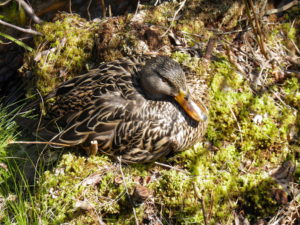
American Black Duck (photo by John Parke)
The work associated with restoration will provide critical habitat needed for this declining species. The New England/Mid-Atlantic Coast Bird Conservation Region designates American Black Duck as “highest” priority within the region, identifying habitat restoration, protection and monitoring needs as highest needs for the species. Included in the habitats listed in the BCR as “most needed for the species” is “moist soil units of low-lying, wet, non-forested areas where water is seasonally impounded.” This is the habitat type that will be restored through the proposed restoration at the project site.
Following the U.S. Fish and Wildlife Service’s American Black Duck Conservation Action Plan, this project will fulfill a key goal by restoring previously drained wetlands and improving waterfowl feeding, nesting and migratory habitats.
The project will fulfil habitat needs for the American Black Duck and is the first NRCS approved project under the Black Duck Working Lands for Wildlife program in NJ. This restoration project will also provide significant ecological uplift for many other wildlife species, improve ecological function and will improve water quality.
“Hudson Farm is proud to partner with NJ Audubon on this project. Hudson Farm, as one of the largest preserved properties in Northern New Jersey with diverse habitat, is uniquely positioned to host and support this and many other wildlife habitat projects,” said Hudson Farm Club Manager Steve Polanish. “These projects would not be possible without the extraordinary effort and expertise of partners such as NJ Audubon. We look forward to implementation of this project and the successful habitat restoration benefiting the black duck, a unique and important species.”
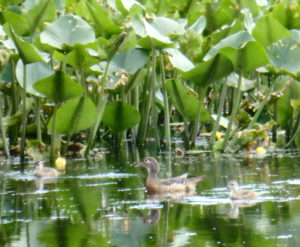
Female Wood Duck with Young in North Jersey Wetland Photo by John Parke)
Formerly misunderstood as wastelands, wetlands are now recognized for their vital ecological and socioeconomic contributions to society, as well as, providing critical habitat for many wildlife species. Over the last 200 years many wetlands have been lost or degrading, contributing to a corresponding declining in many wildlife species. The United States has lost over 117 million acres of its wetlands. Erosion, flooding, and sedimentation have resulted. The decrease and loss of wetlands has decreased populations of wildlife associated with wetland habitats. Looking nationwide, few areas have lost more wetlands than the state of New Jersey.
“It is critical that more effort be made, to not only engage private land owners that have wetlands on their property for protection, but to also work with them to help restore proper wetland function to areas that have been degraded over time,” said John Parke, NJ Audubon Project Stewardship Director. “This is especially important for those properties containing former wetland areas in and around floodplains that have been historically drained and are considered agricultural modified wetlands. It is these areas that funding and technical assistance are available through the Delaware River Watershed Initiative, the Black Duck Working Lands for Wildlife program and other U.S. Department of Agriculture conservation programs to restore natural ecosystem functions.”
For more information about how you too can help American Black Duck Habitat and Water Quality in the Delaware River Watershed -contact John Parke at [email protected]
If you would like to support NJ Audubon Stewardship Department Project work like the Black Duck Initiative, Bobwhite Restoration Initiative and many other habitat and species restorations – please consider donating to the NJA Stewardship Department World Series of Birding Team, The Fight’n Femelschlagers





